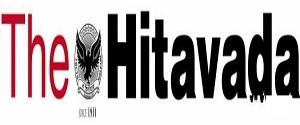TOUCH GRAPPLE
| Date :21-Jan-2020 |

NO MATTER the official agenda before the World Economic Forum (WEF) at the Alpine Resort of Davos in Switzerland, tough issues confront the world today, crying for an immediate handling in the toughest manner possible. True, climate change is the most critical of the issues on the official agenda. True, the world engaged in multiplicity of political conflicts is another one. True, economic hegemony which some nations are engaged in establishing for themselves, is the third issue that may find a mention in the official document. But beyond and behind all these is a silent issue that most are most likely to miss -- the issue of human greed over human actual need. That is the actual problem. Of course, underlying this greed is the stark reality of collective life -- the paucity of our natural endowment that makes conflict appear unavoidable.
And that is the actual spot of trouble for all of us nations of the world. When resources are scarce, when users are more, when cost of extraction is tearing through the skies, anxieties, too, mount. The world of today is the victim of a collective anxiety whose meaning it has not been able to decipher. At Davos, this issue must find a legitimate place in discourse, and not just the superficial details that may claim a lot of attention, mostly with a limited outcome of an intensely political nature. True, the forum handles economic issues that dare the humanity squarely. But this factual point is also acting as a deflecting mirror that does not allow us to peep deeper into the unsavoury truth of today’s life together.
The truth is that economy is never an isolated craft; it is a cumulative approach not just to material wealth but also to spiritual heritage of humankind. That is the concept of Lakshmi which India traditionally understands very well, but the world refuses even to think about. Economics, thus, is a subject of human inquiry into the optimal management and usage of collective endowment bestowed upon us by the Divine. Economics, thus, is not a science of greed, but a spiritual approach to equitability as the core principle of management of whatever is scarce, but whatever is essentially everybody’s property.
The WEF, fundamentally, must understand this critical point in collective human thought. So far, it has served a great cause of providing a common platform to the nations of the world to come together to find ways and means of better handling of economic issues. But each time the WEF meets, the world often finds itself under clouds of conflict of a starkly political nature, though outwardly defined as the so-called national interests of some countries.
And that is where the trouble only escalates rather that dissipates. It may be preponderous to expect WEF to sort out issues right in one edition. But this edition of WEF must try to form a right definition of what the world should look at and what it actually needs. This might not have been included in the official agenda, but the WEF succeeds in at least launching the thought, it will have served a much greater purpose than it can imagine.
This is the actual need of the time. This is so because we -- the humanity -- are standing at a dangerous crossroads at which we can only ill-afford to take a wrong turn. True, economics of future has to be managed well so that we sort out the reasons of future conflicts before those actually take place. But let us not miss the point that such a decent and reasonable sorting out can take place only when the world understands the crux of the concept of Lakshmi as Indians of ancient times understood. At this point, we, as a newspaper, must assert that the world needs that definition -- honed by India’s ancient thinkers and sages. For, they had correctly envisioned a harmnonious world.